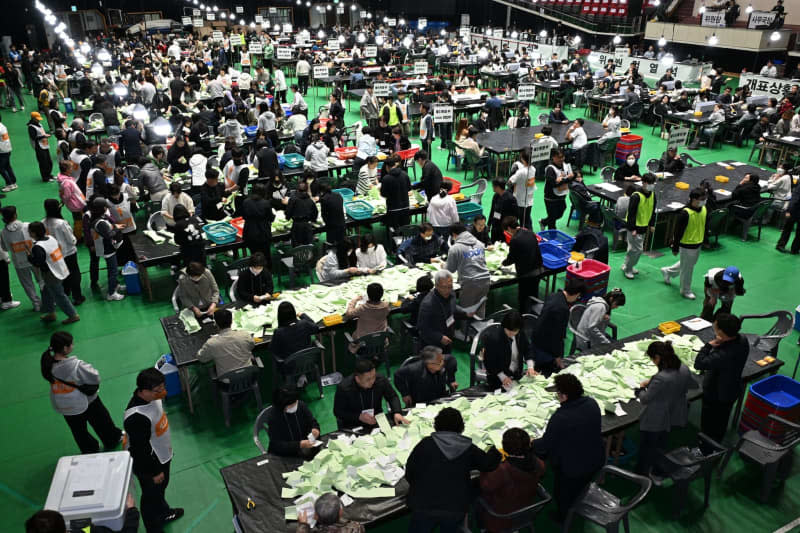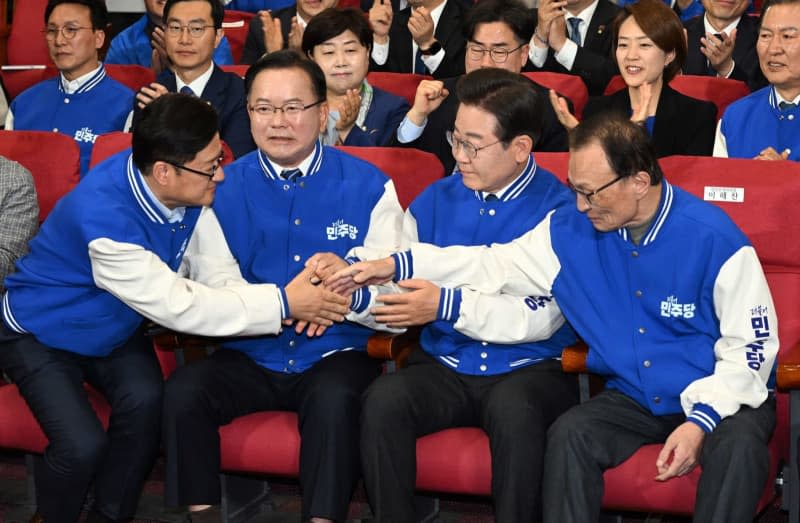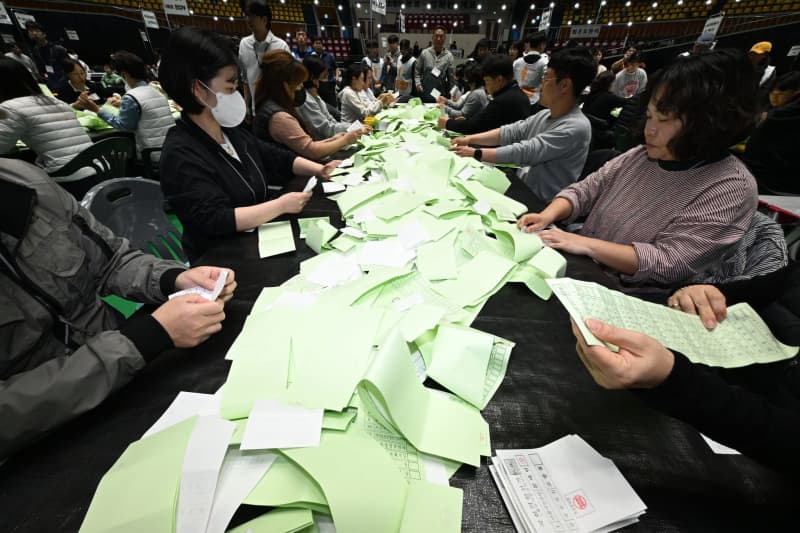The Democratic Party (DP) of opposition leader Lee Jae Myung was able to maintain its position as the largest single party in the 300-seat National Assembly, South Korean broadcasters reported.
As a result of the opposition’s success in the election, the conservative head of state now faces the threat of becoming largely incapable of domestic political action during his remaining three years in office.
After more than 90% of the votes were counted in 254 constituencies, the DP could reportedly count on 160 seats, while Yoon’s People Power Party (PPP) would be represented by 91 MPs in future.
In addition to the direct mandates, 46 seats are allocated to list candidates in the quadrennial election based on the proportional share of the vote.
In Asia’s fourth-largest economy, the opposition’s success signalled a continuation of the difficult political balance of power.
Yoon’s party had hoped for a shift in power in its favour to push through legislative projects more easily. PPP leader Han Dong Hoon had already expressed his disappointment at the exit polls conducted by various broadcasters, which had predicted an overwhelming victory for the opposition.
Experts spoke on television of a looming disaster for the government camp.
The election was seen as an important interim test for the government led by Yoon. The next presidential election is scheduled for 2027.
Yoon, who narrowly won the election two years ago ahead of DP leader Lee, will no longer be eligible for re-election. According to the country’s constitution, Yoon can continue to govern as president even if the opposition has a majority in parliament. However, in this case, important legislative reforms by the government could be blocked.
The election campaign was characterized by mutual attacks between the parties.
The DP and other parties called for judgement to be passed on the government, which they accused of economic incompetence in the face of rising prices for food and other goods. The PPP asked voters to support the government’s reform policy with their vote and to keep the opposition in check.
More than 44.25 million citizens were eligible to cast their votes in Wednesday’s election. According to preliminary figures from the state election commission, the turnout was 67%, the highest figure for parliamentary elections in 32 years.



